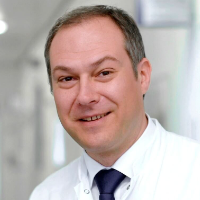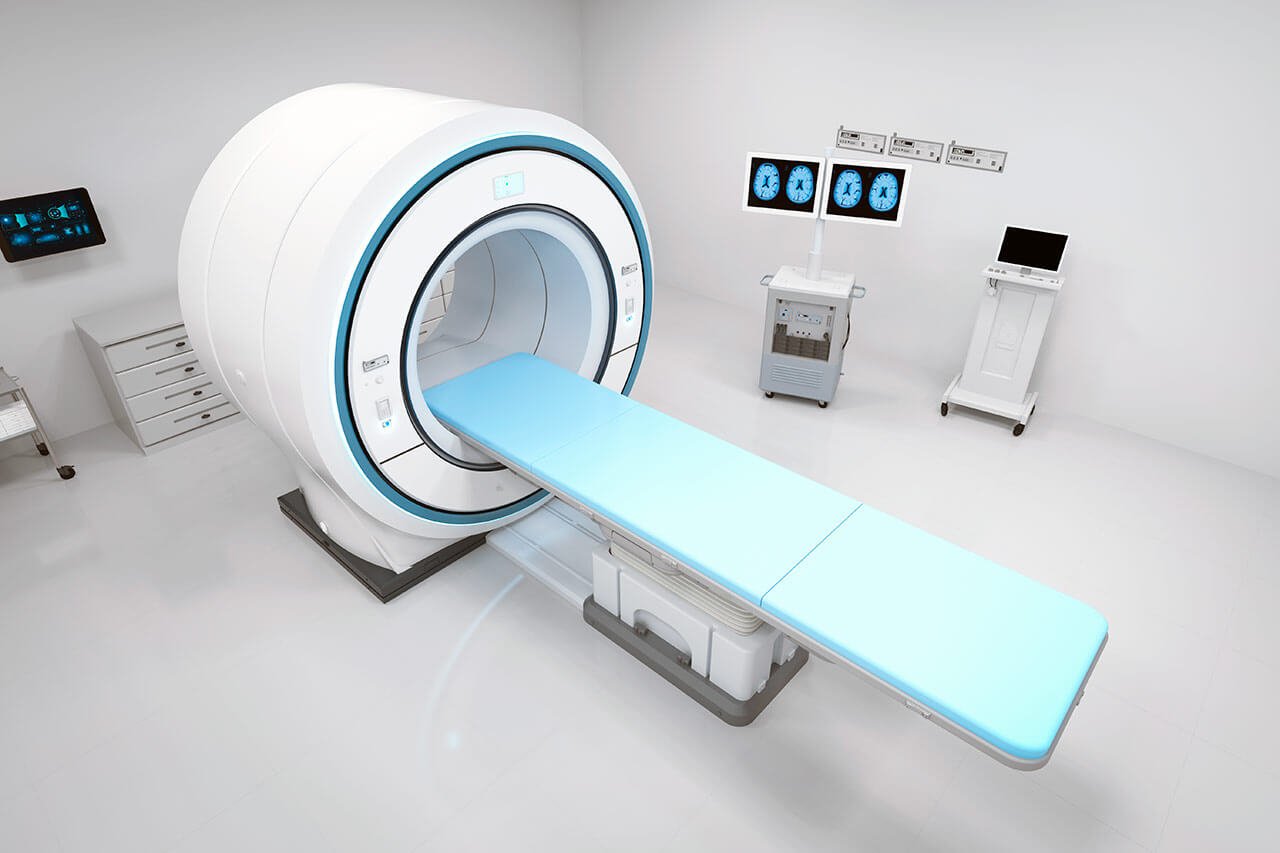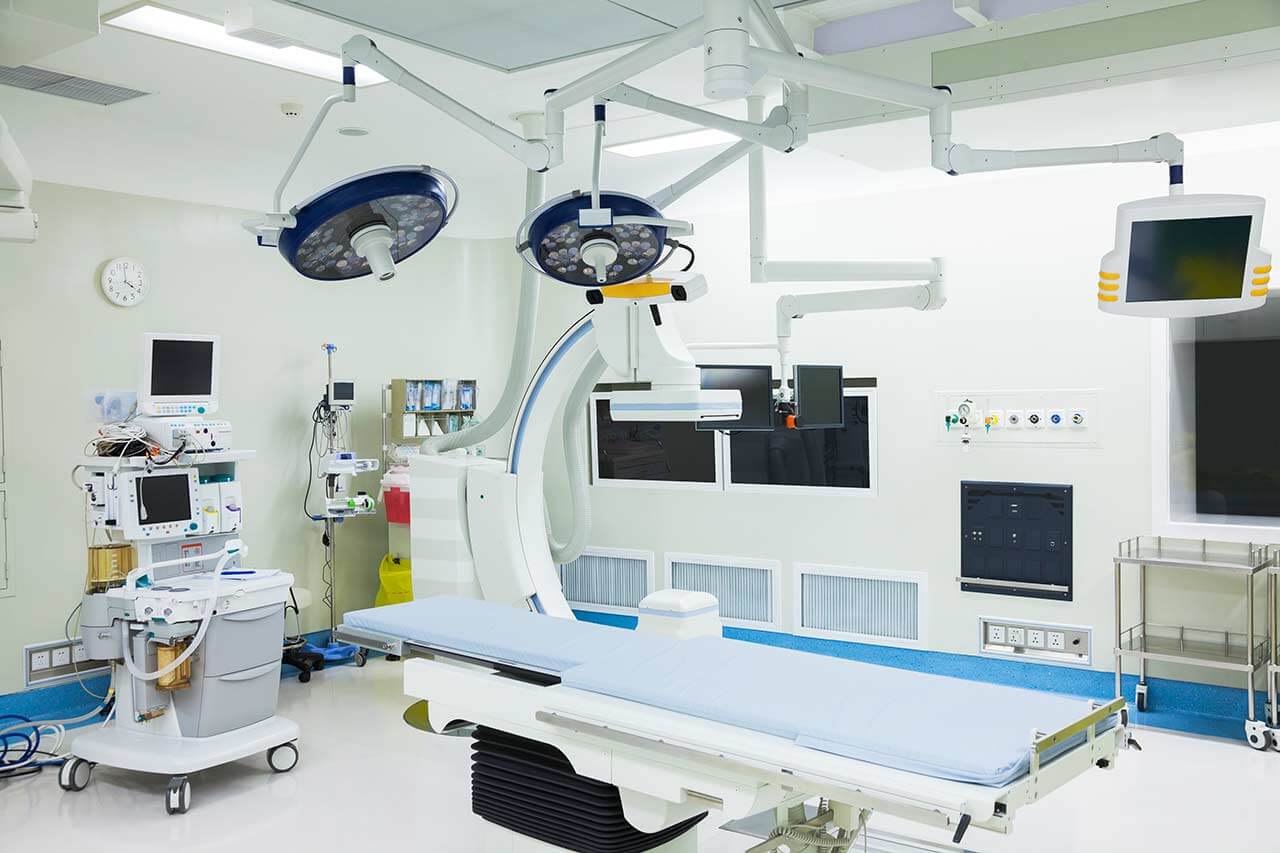
About the Department of General and Abdominal Surgery, Endocrine Surgery, Hernia Surgery, Hepatopancreatobiliary Surgery, Colorectal Surgery and Bariatric Surgery at ViDia Hospital Karlsruhe
The Department of General and Abdominal Surgery, Endocrine Surgery, Hernia Surgery, Hepatopancreatobiliary Surgery, Colorectal Surgery and Bariatric Surgery at the ViDia Hospital Karlsruhe offers the widest range of modern surgical interventions in the areas of its specialization. Patients with stomach, colon, esophageal, pancreatic, liver, gallbladder, bile duct, and rectal diseases are operated on here. The department has unique experience in providing medical care to patients with pathologies of the thyroid gland, parathyroid glands, and adrenal glands. Hernia repair surgery for all types of hernias and bariatric interventions for morbid obesity are also performed here. A source of the department's pride are three modern operating rooms, which were put into operation in 2011. The operating rooms are equipped with state-of-the-art technology and adapted for minimally invasive laparoscopic interventions. The department has been certified by the German Cancer Society (DKG) in colon cancer treatment since 2011, and the department has received the same certification in pancreatic cancer treatment since 2020. It is worth noting that the department is part of the hospital's Cancer Center certified by the German Cancer Society (DKG), which provides patients with comprehensive cancer treatment with the participation of specialists from all related medical fields. The department's surgeons successfully perform cytoreductive interventions followed by hyperthermic intraperitoneal chemotherapy (HIPEC). This treatment is not offered in every hospital because it requires special training and long experience from doctors. The health of patients is in the safe hands of a highly qualified team of 18 surgeons and more than 70 medical staff members. The Head Physician of the department is Prof. Dr. med. Oliver Drognitz.
The department's key area of specialization is the surgical treatment of malignant gastrointestinal diseases. The specialists at the medical facility have a perfect command of minimally invasive surgical techniques, so they strive to perform resections of malignant tumors using these methods whenever possible. The department regularly performs laparoscopic surgical procedures for stomach cancer, colon cancer, rectal cancer, liver cancer, and other malignant diseases. During such interventions, a surgical approach is provided through small skin and soft tissue incisions 3-11 mm in length. Trocars (a special surgical instrument resembling a thin tube) and a miniature video camera are inserted through the incisions, with the help of which the images of the operating field are transmitted to a large screen at multiple zooms in real time. When performing the intervention, the doctor inserts thin, long surgical instruments into the abdominal cavity and performs the necessary surgical manipulations, guided by the images of the operating field on the screen. The result of minimally invasive surgery is comparable to classical open surgery. However, patients recover faster after such operations, the risk of postoperative complications is minimal, and excellent aesthetic results are provided.
The department offers an innovative treatment for peritoneal carcinomatosis: cytoreductive surgery combined with hyperthermic intraperitoneal chemotherapy (HIPEC). This type of treatment is the only effective method that allows patients with peritoneal carcinomatosis to increase their life expectancy and improve their quality of life. The procedures of cytoreductive surgery and HIPEC begin with the surgical removal of visible tumors from the abdominal cavity. After completing the surgery, doctors rinse the patient's abdomen with a chemotherapy solution heated to 42-43°C through the previously placed drainage systems under the same anesthesia. This stage of the therapeutic procedure is called hyperthermic intraperitoneal chemotherapy. It is aimed at destroying the microscopic remnants of the tumor. Depending on the chemotherapy drugs used, the duration of the HIPEC procedure may last 30-120 minutes. This treatment is performed once. Cytoreductive surgery combined with HIPEC is performed in the department for such types of cancers as colorectal cancer, rectal cancer, peritoneal pseudomyxoma, appendix cancer, stomach cancer, peritoneal mesothelioma, sarcomatosis, etc.
The department's surgeons regularly operate on patients with various types of hernias, such as inguinal, umbilical, diaphragmatic, and incisional, as well as anterior abdominal wall hernias and parastomal hernias. The department's surgeons perform hernia repairs using both classic open and minimally invasive techniques. Minimally invasive surgery, such as transabdominal preperitoneal hernia repair (TAPP), IPOM mesh implantation, and other techniques, is preferred when clinically indicated. The main advantages of minimally invasive hernia repair surgery are less severe postoperative pain and a short recovery period. It is worth noting that when performing laparoscopic hernioplasty, the hospital stay is only one day. In most cases, hernia repair surgery is performed under general anesthesia, but surgeons can also use local anesthesia whenever possible.
The department's team of hepatopancreatobiliary surgeons specializes in the surgical treatment of diseases of the pancreas, liver, gallbladder, and bile ducts. In 2020, the department received quality certification in pancreatic surgery from the German Cancer Society (DKG). The specialists operate on patients with pancreatic cancer, including neuroendocrine tumors, chronic pancreatitis, and pancreatic cysts. A large number of surgical interventions on the pancreas are performed using minimally invasive techniques, which reduces risks to the patient’s health and can significantly shorten the duration of the hospital stay.
Colorectal surgery plays an important role in the department's clinical activity. Surgeons admit patients with rectal and anal pathologies, the most common among which are hemorrhoids, thrombosed hemorrhoids, perianal abscesses, perianal fistulas, anal fissures, rectocele, fecal incontinence, benign tumors, and malignant neoplasms. Surgical procedures for these conditions are almost always performed using minimally traumatic surgical techniques without extensive skin and soft tissue incisions.
The department's key clinical focuses include:
- General and abdominal surgery
- Surgery for benign diseases
- Appendectomy (surgery to remove appendicitis)
- Cholecystectomy (surgery to remove the gallbladder)
- Splenectomy (surgery to remove the spleen)
- Surgery for diverticular disease
- Surgery for inflammatory bowel diseases: Crohn's disease and ulcerative colitis
- Surgery for gastroesophageal reflux disease
- Surgery for achalasia cardia
- Surgery for Zenker's diverticulum
- Surgery for malignant diseases
- Surgery for stomach cancer
- Surgery for colon cancer
- Surgery for esophageal cancer
- Cytoreductive surgery combined with hyperthermic intraperitoneal chemotherapy (HIPEC) for peritoneal carcinomatosis
- Surgery for benign diseases
- Hernia surgery
- Surgery for inguinal hernias
- Surgery for umbilical hernias
- Surgery for anterior abdominal wall hernias
- Surgery for incisional hernias
- Surgery for parastomal hernias
- Surgery for diaphragmatic hernias
- Hepatopancreatobiliary surgery
- Surgery for pancreatic diseases
- Surgery for benign pancreatic diseases: chronic pancreatitis and pancreatic cysts
- Surgery for malignant pancreatic diseases: pancreatic cancer and neuroendocrine tumors
- Surgery for liver cancer and liver metastases
- Surgery for gallbladder cancer and bile duct cancer
- Surgery for pancreatic diseases
- Colorectal surgery
- Surgery for hemorrhoids
- Surgery for thrombosed hemorrhoids
- Surgery for perianal abscesses and fistulas
- Surgery for anal fissures
- Surgery for pilonidal sinus
- Surgery for rectocele
- Surgery for rectal prolapse
- Surgery for fecal incontinence
- Surgery for benign and malignant rectal and anal tumors
- Endocrine surgery
- Surgery for thyroid cancer and benign thyroid diseases (for example, goiter)
- Surgery for parathyroid diseases: hyperparathyroidism
- Surgery for benign and malignant adrenal tumors
- Bariatric surgery
- Endoscopic intragastric balloon implantation
- Gastric banding
- Sleeve gastrectomy
- Roux-Y gastric bypass
- Mini-gastric bypass
- Biliopancreatic diversion with a duodenal switch
- Other surgical options
Curriculum vitae
Higher Education and Postgraduate Training
- 1990 - 1997 Medical studies, Faculty of Medicine, University of Luebeck.
- 09.1995 United States Medical Licensing Exam (USMLE), stage 1.
- 08.1996 United States Medical Licensing Exam (USMLE), stage 2.
- 08.1997 Examination of the Educational Commission for Foreign Medical Graduates (ECFMG).
- 09.1998 Thesis defense, Faculty of Medicine, University of Luebeck. Subject: "Characterization of released vancomycin and teicoplanin from sponge-resorbable glycerol gelatin foam: experimental studies of possible local therapy with glycopeptide antibiotics".
- Habilitation in Surgery, Faculty of Medicine, Albert Ludwig University of Freiburg. Subject: "Pathophysiology of ischemia/reperfusion after pancreas transplantation with special focus on microcirculation, apoptosis, and gene expression".
- 04.2010 Extraordinary Professorship for Surgery, Faculty of Medicine, Albert Ludwig University of Freiburg.
Professional Career
- 07.1997 - 12.1998 Internship, Department of General, Vascular, Thoracic and Transplant Surgery, University Hospital Rostock.
- 01.1999 - 08.2001 Research Fellow, Department of General, Abdominal, Thoracic and Transplant Surgery, University Hospital Rostock.
- 09.2001 - 04.2005 Research Fellow, Department of General and Abdominal Surgery, University Hospital Freiburg.
- 04.2005 Head Physician, Department of General and Abdominal Surgery, University Hospital Freiburg.
- 11.2008 Head Physician, Department of Hepatobiliary Surgery, University Hospital Freiburg.
- Since 03.2009 Head Physician, Center for Hepatobiliary Surgery, University Hospital Freiburg.
- Since 05.2010 Head Physician of the Interdisciplinary Surgical Tumor Board "Hepatocellular carcinoma", University Hospital Freiburg.
- 10.2011 Head Physician, Interdisciplinary Center for Intestinal Surgery, University Hospital Freiburg.
- 04.2013 Head Physician, Department of General and Abdominal Surgery, Endocrine Surgery, Hernia Surgery, Hepatopancreatobiliary Surgery, Colorectal Surgery and Bariatric Surgery, ViDia Hospital Karlsruhe.
Certification and Additional Qualifications
- 09.2003 Certification in Surgery, Medical Association of South Baden.
- 04.2009 Certification in Abdominal Surgery, Medical Association of South Baden.
- 04.2009 Additional qualification in Intensive Care, Medical Association of South Baden.
Photo of the doctor: (c) ViDia Kliniken Karlsruhe





